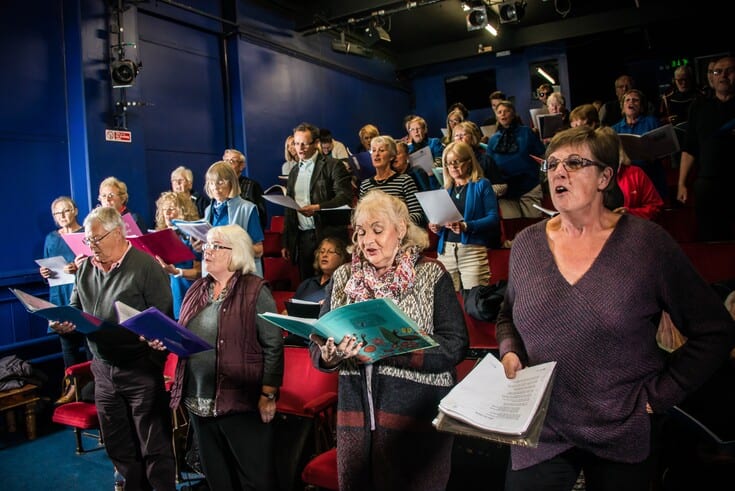
A new report by the Chief Medical Officer has found there are high concentrations of chronic diseases and lower life expectancy in England’s coastal towns. Whilst a focus on health equity in policy decisions is needed to address these health inequalities, our funded partner The Voice cLoud demonstrates how communities can take their own measures to improve the health of local residents.
The Voice cLoud is funded through People’s Health Trust’s Active Communities programme using money raised by Health Lottery East. They received £30,577 funding in 2016 and £30,000 in 2018 for their "singing for wellbeing" project based in Lowestoft and Waveney. The project aims to encourage interest in Suffolk’s unique coastal, cultural and musical heritage by exploring folk music and its associated traditions created by fishing communities.
When Chief Medical Officer, Chris Whitty’s ‘Health in Coastal Communities’ was published, the issues raised resonated with project participants and leads at The Voice cLoud. The report recognises that areas experiencing high levels of disadvantage are often overlooked by policy makers as existing data does not look at small enough neighbourhoods and, more affluent areas hide the severity of deprivation.
This lack of data and analysis of coastal communities has a huge impact on people’s quality of life and life expectancy. For example, The Voice cLoud work in two bordering neighbourhoods where the difference in life expectancy is seven years.
Apathy and a sense of a lack of control were also raised as issues in coastal communities including Lowestoft and Waveney. Community power is one of the fundamental determinants of health that People’s Health Trust funded partners deliver on. For participants of The Voice cLoud, having control of the project and how it is delivered is an important aspect of being able to support people to tackle individual health issues and have a voice in their community.
The majority of project leads have lived experience of the issues the project addresses such as mental illness, mobility issues and, unemployment. Having lived experience motivates those leading the project as they are passionate about supporting others experiencing similar obstacles. It also means they are best placed to understand what people want to engage with and what support is most helpful.
The Voice cLoud delivers music sessions for parents of children in their early years, extra-curricular music workshops for young people, and a choir for local people. Whilst the activities are fun, educational and provide a way for people to connect with their heritage, it is the community power and social connections aspect of the project where people are able to make positive changes to the health inequalities they face. Through participating in the project residents have become more empowered to be active in their community and feel they have more control.
The Voice cLoud is an example of the power of local communities to lead on this change. When researching inequalities in coastal communities and what needs to be done to achieve health equity, local people must be at the forefront of the conversation.
